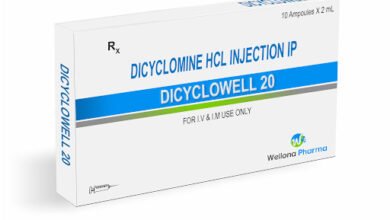Is Berberine Bad For Kidneys? All You Need To Know

Berberine, a bitter compound sourced from plants like barberry and goldenseal, has gained recent recognition for its extensive health benefits. Many nutritionists advocate for Berberine, particularly in addressing kidney and liver problems. Considering its potential to impact gut-friendly bacteria, consider using Berberine for kidney problems. However, a common question arises: Is Berberine bad for kidneys? Medical experts may offer varying opinions on this matter. This comprehensive guide aims to provide insights into Berberine’s proven benefits, risks, and potential side effects.
What is Berberine?
Berberine, earlier used in traditional medicine, has emerged as a part of modern medicine with time. Its antimicrobial and anti-inflammatory property makes it an ideal compound for use in high cholesterol, diabetes, high blood pressure, and liver disease.
With experiments and research, doctors have considered berberine fit for treating different health ailments. Yet, proper scientific evidence needs to clarify the debate over its usefulness.
Berberine: Does it affect kidneys?
Precisely, Berberine acts as a therapeutic drug for rectifying chronic kidney ailments. The composition of Berberine is significant in protecting both kidneys and the liver from ferrous sulfate-induced toxicity. Reducing lipid peroxidation boosts the kidneys’ natural potential to remove waste through iron Kidneys’. Research suggests that while Berberine can offer health advantages, it’s crucial to understand its implications, especially concerning kidney health.
Does science support Berberine’s use of kidneys?
Undoubtedly, scientists have come across several speculations regarding Berberine’s impact on kidneys. Many researchers have defended that chronic kidney disease can be alleviated by altering the gut microbiota’s composition. Relatively, the production of gut-derived uremic toxins also favors Berberine used for kidneys.
Other theories indicate one to be cautious. Moreover, it would help if you were up-to-date with the doctor’s instructions before accepting Berberine to heal your kidneys.
Crucial Benefits of Berberine
When taking any supplement, making informed decisions is the key. Similarly, Berberine disclosed its capacity to treat the liver, kidneys, and high blood sugar. From its impeccable benefits through weight loss and cure of heart conditions, Berberine has become a significant part of modern science.
The uncountable benefits of this compound may include:
1. Controlled Diabetes
According to many reports, Berberine had positive reports on blood sugar, triglycerides, and insulin. Therefore, a combination of Berberine and blood-sugar-lowering drugs can be utmost effective than the drugs alone.
Also Read: Better Diabetes Control in 15 Minutes or Less
2. High Blood Pressure
As per the Journal of Ethnopharmacology, berberine and high blood pressure drugs successfully lowered the onset of high blood pressure. You may reduce the severity of heart disease by consuming Berberine.
3. Polycystic Ovary Syndrome
Many doctors prescribe metformin for acting upon higher levels of male hormones. Recently, studies showed the potential of Berberine in treating PCOS. But, the authenticity of this chemical compound is yet to be confirmed.
4. Cancer
You may have changes in the molecules of cells, resulting in defeating cancers. Berberine tends to interfere with cancer’s progression by killing cancer cells. However, researchers have used Berberine for laboratory testing but only in some people.
Also Read: Super Supplements for Fighting Cancer
5. Obesity
Reports claim that taking 750 milligrams of Berberine twice a day for 3 months can cause a decrease in overall weight. Moreover, Berberine can potentially change gut bacteria, which is believed to treat obesity.
What are the other potential Risks of Berberine?
As with any compound, some associated risks are normal. Accordingly, NCCIH notes that if adults take Berberine orally, it can end up with severe adverse effects. It doesn’t mean that Berberine is safe for long-term implications.
Let’s read out the risks that Berberine contains:
-
Stomach Upset
-
Nausea
-
Constipation
Safety Precautions to follow before taking Berberine?
Firstly, berberine supplements are only suitable for some body types. You need not be desperate regarding its intake. Remember that safety precautions can relieve you from life-threatening complications.
Some of the elementary precautions to follow before taking Berberine for kidneys include:
-
Take the dosage as per the doctor’s recommendation
-
Speak to a doctor if you are already having any medical condition
-
Note down the signs of side effects and get immediate treatment.
-
Have a kidney checkup to ensure that this organ is safe
-
Do not use Berberine if the side effects don’t subside.
Also Read: Can Berberine Damage Your Liver?
Conclusion:
In short, the association of Berberine with kidneys needs to be clarified. Yet, healthcare professionals have always given the green signal to Berberine on kidneys. While many researches shows benefits, other theories have reflected upon the risks of Berberine. It would help if you strictly took Berberine after speaking with your nearest doctor, as compromising the kidney’s well-being will be a challenging decision. I hope you get an answer to the query, “Is Berberine bad for kidneys?”
Frequently Asked Questions
Can Berberine damage kidneys?
No, Berberine may protect kidneys from ferrous sulphate-induced toxicity.
Are berberine supplements safe for kidneys?
Undoubtedly, berberine supplements are very safe for the kidneys.
Can you take Berberine to treat your kidneys?
Typically, Berberine has shown positivity in alleviating chronic kidney ailments.
How much Berberine for kidneys?
Doctors prescribe 100 to 150 mg of Berberine to prevent renal ischemic injury.
Who should not take Berberine?
Pregnant ladies should not be given Berberine.
Source link
#Berberine #Bad #Kidneys



